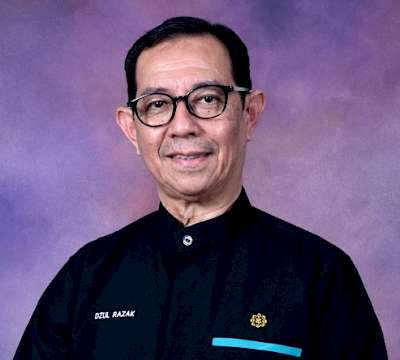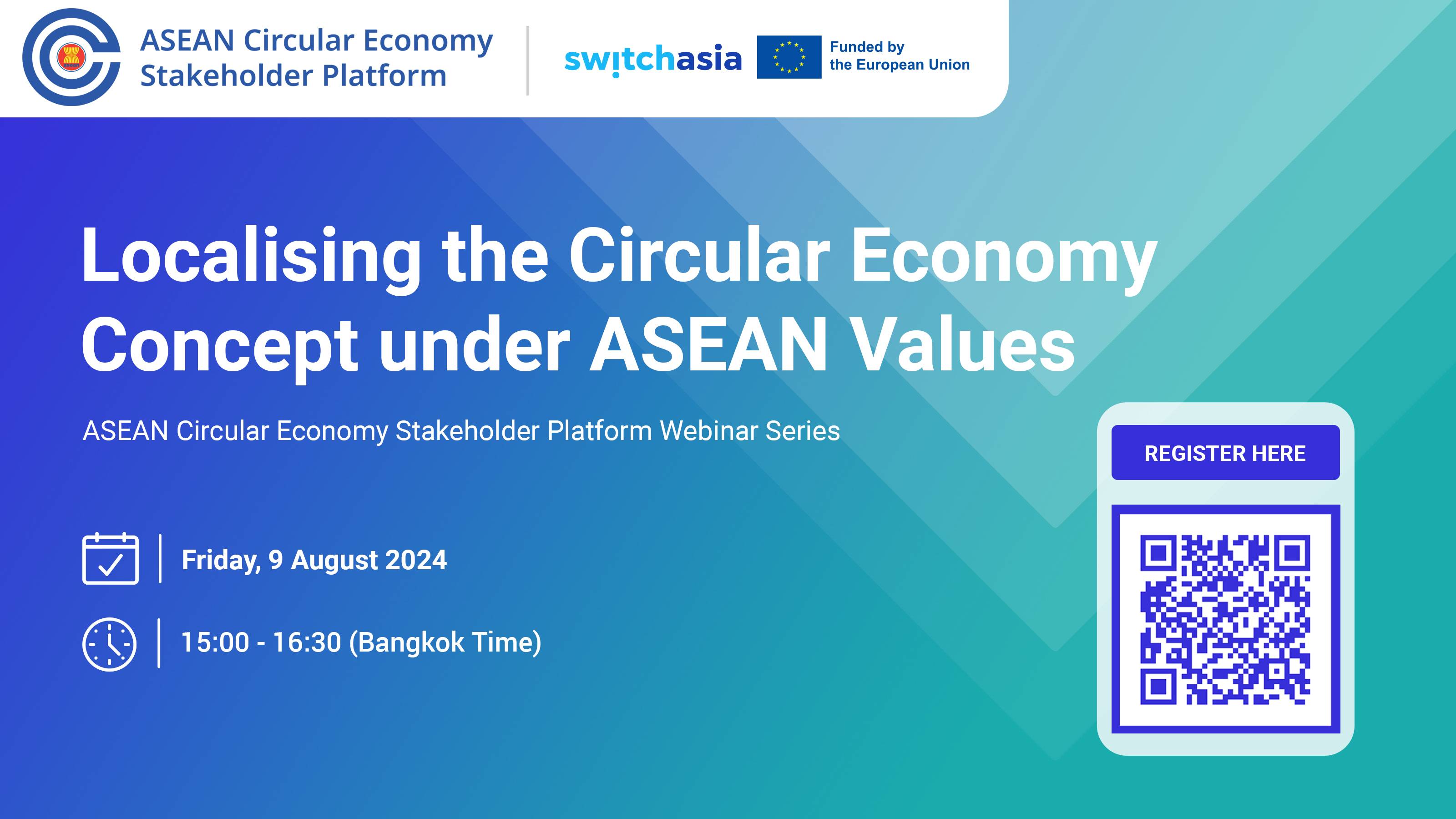
WHEN: 9 August 2024 I TIME: 15:00 - 16:30 (Bangkok Time) I Platform: ZOOM I Watch the recording HERE
Background:
Circular Economy has become immensely important for ASEAN as the region intensifies its efforts to decouple economic growth from environmental footprints. As a region of vibrant and boundless diversity, encompassing the distinct cultural, social, economic, and environmental landscapes of the 10 ASEAN Member States—from unique histories, ethnicities, religions, and traditions, to individualized geographical, political, and economic contexts of each nation—many interpretations of circular economy have emerged as the concept is ‘localized’ through various national practices. How the circular economy is interpreted is strongly influenced by the practice context, including business, communities, and civil society, and also by Southeast Asian values with their own cultural and belief systems, along with particular challenges and opportunities.
In Thailand, for example, the circular economy might be reflected through the Sufficiency Economy, a local philosophy based on the fundamental principles of moderation, prudence, and social immunity by using knowledge and virtue to live more independently with contentment. This philosophy stems from Theravada Buddhism. Sufficiency philosophy can assist in the acceptance of circular economy principles, with which it shares the recognition of resource limitations. It can promote sustainable practices by reducing resource extraction and lessening environmental impacts such as pollution, waste generation, and nature degradation.
Similarly, in Vietnam, the values of Tích trữ (Thrift) and Trân trọng thiên nhiên (Respect for Nature) share many common principles supporting the introduction of the circular economy in the country. Tích trữ emphasizes making the most out of available resources and encourages extending the lifecycle of goods through durable product consumption, reducing replacements, repairing products, minimizing waste, and reusing materials and second-hand products. Trân trọng thiên nhiên values the natural environment and resources as essential to life and therefore promotes environmental stewardship, natural resource conservation, and biodiversity protection through fostering a sense of responsibility.
In the Philippines, there are related common values called Kapwa (shared responsibility), Diskarte (resourcefulness), Paggalang (respect for others), Kalikasan (nature and the world), and Utang na loob (gratitude and reciprocity) that align with the circular economy. Kapwa emphasizes community and collective action. Diskarte encourages creativity and innovation in finding ways to maximize the use of resources, minimize waste, and find new purposes for discarded materials. Paggalang promotes ethical behavior, consideration for others, and doing no harm to the community. Kalikasan fosters a deep respect for the environment, driving efforts to protect natural resources and reduce environmental impacts. Utang na loob instills a sense of responsibility to give back and maintain balance.
Indonesia, Malaysia, and Singapore also have the Gotong Royong tradition. In Javanese, Gotong—shared burden—and Royong—communally—together translate to mutual cooperation to realize a shared goal. Gotong Royong instills an individual’s obligation or responsibility towards society, promoting and reciprocating communal work in a community. The tradition generally involves cleaning, sweeping, picking up garbage, or cleaning drainage, but it can also extend to farming labor, clearing fields, construction, contributing to large celebrations, etc. The tradition encourages a sharing economy through sharing skills, labor, and resources, and further promotes sustainable agriculture and local food production, waste management, community resilience, and reducing dependency—much like the circular economy.
These are just some examples of how the circular economy concept can be further localized and translated into on-the-ground implementations through the lens of ASEAN’s contexts and values. This webinar will showcase examples from many countries in the region to compare similarities and differences in circular economy approaches among countries, as well as to understand how these values can complement and support the achievement of a circular economy.
Webinar Session:
The ASEAN Circular Economy Stakeholder Platform (ACESP) and the EU SWITCH-Asia Policy Support Component (co-host), are convening the webinar, Localising Circular Economy Concept under ASEAN Values to examine the importance of cultural influences to the interpretation of circular economy.
About the ASEAN Circular Economy Stakeholder Platform Webinar Series
The webinar series, hosted by the ASEAN Circular Economy Stakeholder Platform and co-hosted by the EU SWITCH-Asia Policy Support Component, is strategically designed to foster the adoption of Sustainable Consumption and Production (SCP) practices in the context of the Circular Economy (CE) across the ASEAN region. Recognising the need for a comprehensive approach addressing both supply and demand aspects and bringing together diverse stakeholders, these webinars intend to raise awareness, promote understanding, and facilitate an inclusive dialogue on making the circular economy a tangible reality in the ASEAN region. Thereby, the series aims to strengthen networks and knowledge exchanges among institutions working towards shared sustainability goals.
Chairs
 Chirachai Punkrasin, Executive Director, ASEAN Centre for Sustainable Development Studies and Dialogue
Chirachai Punkrasin, Executive Director, ASEAN Centre for Sustainable Development Studies and Dialogue
Chirachai Punkrasin joined the ASEAN Centre for Sustainable Development Studies and Dialogue in April 2022 as Executive Director. He began his Foreign Service career working on ASEAN issues at the Foreign Ministry’s Department of ASEAN Affairs and then moved to the then Department of Political Affairs where he worked on Thailand’s relations with the Soviet Union and Eastern Europe. He worked on multilateral economic issues during several assignments to the Department of International Economic Affairs. He served as Director-General of the Department of American and South Pacific Affairs from 2009 to 2012 where he was responsible for overseeing Thailand’s relations with the countries in North America, Central America and the Caribbean, South America and the South Pacific.
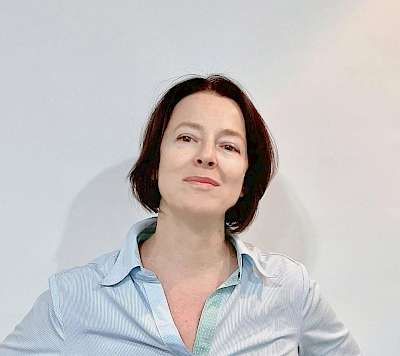
Zinaida Fadeeva, Team Leader, SWITCH-Asia Policy Support Component
Zinaida Fadeeva is the Team Leader of the Policy Support Component of the SWITCH-Asia Programme. Zinaida has over 25 years leading international professional experience in policy for and practice of sustainable consumption and production (SCP) and Education for Sustainable Development, amongst others working with the United Nations University Institute for the Advanced Studies of Sustainability (UNU-IAS). Her work has focused on diverse topics such as tourism, plastics, construction, small and medium enterprises, procurement and lifestyle. Zinaida has worked extensively with governments, private sector, international organisations and academia in East, South East, South and Central Asia.
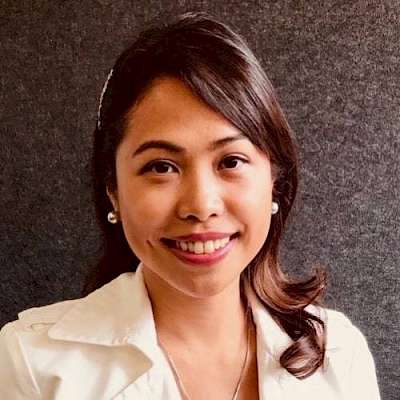 Loraine Gatlabayan, Key Expert on SCP awareness raising and regional partnership building at the SWITCH-Asia Policy Support Component
Loraine Gatlabayan, Key Expert on SCP awareness raising and regional partnership building at the SWITCH-Asia Policy Support Component
Loraine is the Key Expert on SCP awareness raising and regional partnership building of the SWITCH-Asia Policy Support Component of the SWITCH-Asia Programme. She did consultancy work from 2013-2018 in the Asian Development Bank, the United Nations Environment Programme - Regional Office in Asia and Pacific based in Bangkok, Thailand and the Asia-Pacific Roundtable on Sustainable Consumption and Production (APRSCP) activities, where she is currently treasurer and board member. She has also worked at the Climate Change Commission (CCC) the Philippines as Division Chief for Knowledge Management, Director of the Center for Social Policy in the Ateneo School of Government, Ateneo de Manila University, Philippines, and lead various regional, national, and local projects focusing biosafety, access rights in environmental decision- making, transparency and accountability, climate change, and resource efficiency.
Moderator
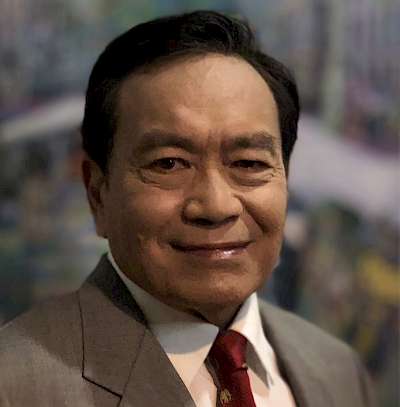 Anthony Pramualratana, Deputy Executive Director, ASEAN Centre for Sustainable Development Studies and Dialogue
Anthony Pramualratana, Deputy Executive Director, ASEAN Centre for Sustainable Development Studies and Dialogue
In July 2022, Dr. Anthony Pramualratana assumed the role of Deputy Executive Director at the ASEAN Centre for Sustainable Development and Studies Dialogue (ACSDSD). The ACSDSD garnered support from leaders during the 34th ASEAN Summit in Bangkok in June 2019 and was officially launched at the 35th ASEAN Summit in Bangkok in November 2019. Its primary objective is to advance research on specific sustainable development issues of mutual interest and facilitate dialogue among ASEAN Sectoral Bodies, Dialogues, and external partners, employing a comprehensive and cross-cutting approach. In September 2022, Dr. Pramualratana played a key role in establishing the ASEAN Circular Economy Stakeholder Platform, a regional facility aimed at helping ASEAN Member States (AMS) achieve sustainable consumption and production by accelerating the transition towards a circular economy.
Speakers
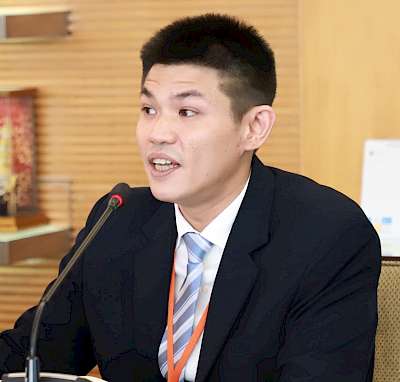 Treesuvit Arriyavat (David), Project Manager, ASEAN Circular Economy Stakeholder Platform
Treesuvit Arriyavat (David), Project Manager, ASEAN Circular Economy Stakeholder Platform
David is a PhD candidate in Management at the College of Management, Mahidol University, Bangkok, Thailand. He holds significant experience in managing projects within the ASEAN context. Currently, David serves as the project manager for the ASEAN Circular Economy Stakeholder Platform (ACESP) at the ASEAN Centre for Sustainable Development Studies and Dialogue (ACSDSD) at Mahidol University, Bangkok. In this capacity, he is responsible for establishing and overseeing the day-to-day operations of the ACESP Secretariat. This role encompasses various tasks, including project coordination, management of the knowledge and information portal, as well as communication and outreach efforts.
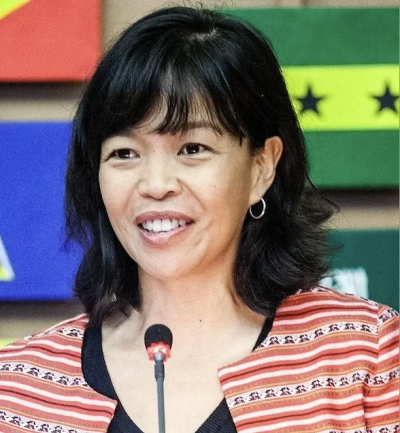 Imelda (Dada) Bacudo, Climate Finance and Engagement Strategist, Food and Agriculture Organisation (FAO)
Imelda (Dada) Bacudo, Climate Finance and Engagement Strategist, Food and Agriculture Organisation (FAO)
Dada Bacudo has played a pivotal role in promoting Climate-Smart Agriculture (CSA) practices across Southeast Asia. She emphasizes the importance of enhancing agricultural resilience to combat climate change impacts, advocating for multi-sector approaches, stakeholder cooperation, supportive policies, financial backing, and relevant technology. Additionally, she has been instrumental in guiding ASEAN's policies to secure broader access to climate finance, thereby building resilience in agriculture and other land use sectors. Her work aligns ASEAN's objectives with global climate frameworks like the Paris Agreement, ensuring active regional participation in international climate negotiations. She is pivotal in the formation of the ASEAN Climate Resilience Network - a successful knowledge exchange platform promoting CSA; and the ASEAN Negotiating Group for Agriculture (ANGA) which built capacities of the agrifood sector to shape climate policies at the global level. Dada is a climate change expert with over 20 years of experience in biodiversity conservation, sustainable development, and conservation finance. She has collaborated with NGOs, national governments, and international development agencies in the Philippines, Latin America, Uganda, and Southeast Asia. She was recently a senior advisor of the COP28 UAE Presidency and responsible, along with her team, to produce the groundbreaking COP28 Leader Declaration on Sustainable Agriculture, Resilient Food System, and Climate Action signed by 160 countries, and as part of the UN FAO team is now supporting the COP29 Azerbeijan presidency to launch its initiatives centered on farmers and agriculture.
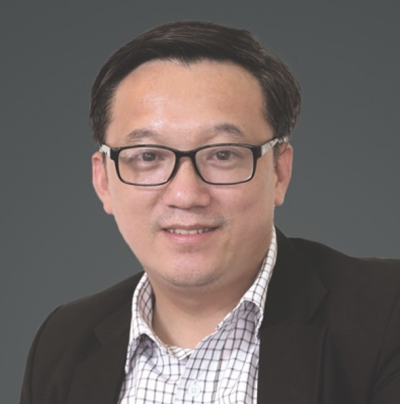 Hong Quan NGUYEN, Director of the Institute for Circular Economy Development (ICED) at Vietnam National University - Ho Chi Minh city
Hong Quan NGUYEN, Director of the Institute for Circular Economy Development (ICED) at Vietnam National University - Ho Chi Minh city
Dr. NGUYEN Hong Quan is the Director of the Institute for Circular Economy Development (ICED) at Vietnam National University - Ho Chi Minh city and also affiliated with the socio-hydrology group at the Center of Water management and Climate Change (WACC), Institute for Environment and Resources (IER), VNU-HCM. He has a special interest in solving environmental related issues based on inter/trans-disciplinary study and by a strong partnership among academia-industry-government. He has been working in environmental hydrology (e.g. saline intrusion, flood/drought, water pollution) in Vietnam over the past 20 years and expanded his expertise in other disciplines e.g. climate change adaptation/mitigation, circular economy, socio-ecological system, sustainability science. He currently serves as a member of the Editorial board of Circular Economy and Sustainability (Springer) Frontier – Sustainability, section Circular Economy; and member of the Policy Advisory Committee of the Global Circularity Protocol for Business.
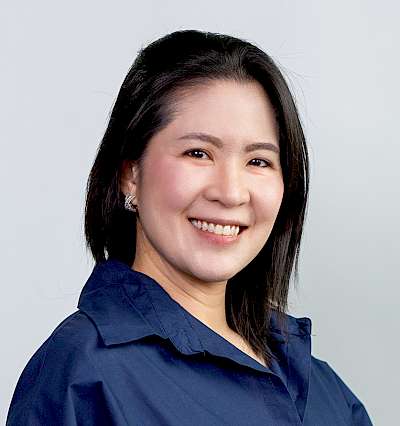 Montakarn Suvanatap Kittipaisalsilp, Associate Project Officer for Culture, UNESCO Regional Office in Bangkok
Montakarn Suvanatap Kittipaisalsilp, Associate Project Officer for Culture, UNESCO Regional Office in Bangkok
Montakarn joined UNESCO in 2011. With education background in linguistics, museology and cultural project development, she is responsible for implementing national and regional capacity-building projects on intangible heritage safeguarding, sustainable tourism, heritage management, professionalization of heritage-related careers and prevention of illicit trafficking of cultural properties. Her interest has been on interdisciplinary and participatory approaches to safeguard heritage and promote community wellbeing, with focus on ensuring ethics in working alongside local communities and indigenous peoples.
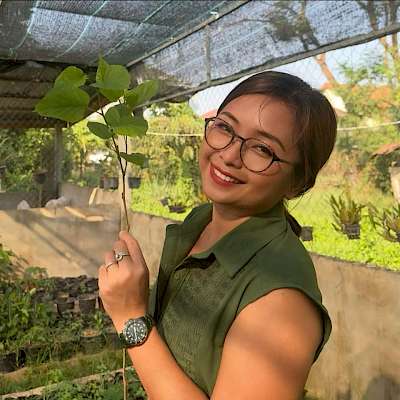 Souksaveuy Keotiamchanh founder of Zero Waste Laos
Souksaveuy Keotiamchanh founder of Zero Waste Laos
Souksaveuy Keotiamchanh is the founder of Zero Waste Laos, a youth-led organization that aims to reduce waste and promote sustainable living in Laos. Zero Waste Laos' initiatives aim to raise awareness about waste reduction and management, climate action, and the implementation of practical solutions that promote a circular economy. Moreover, the organization has been working with young people to build their capacity to be sustainability leaders. Souksaveuy Keotiamchanh is also involved in policy development for the National Plastic Action Plan and regulations that support sustainable waste management practices in Laos.
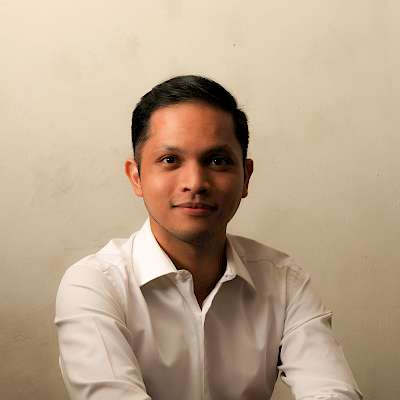 Carlo Chen-Delantar, Head of ESG and Circular Economy at Gobi Partners and co-founder at Circulo (www.circulareconomy.ph)
Carlo Chen-Delantar, Head of ESG and Circular Economy at Gobi Partners and co-founder at Circulo (www.circulareconomy.ph)
Carlo Chen-Delantar is Head of ESG and Circular Economy at Gobi Partners and co-founder at Circulo (www.circulareconomy.ph), Pan-Asian regional venture capital fund with $1.6 AUM. He champions responsible investments and tech ecosystem development through the Gobi-Core Philippine Fund, backing startups like Kumu, Cloudeats and Tier One. Carlo is a recognized figure in social entrepreneurship, climate, and circular economy. He collaborates with global organizations like the World Economic Forum, Asian Development Bank, and the United Nations, also serving as board member on startup, non-profit and government committees. Carlo has received the Development and Bayanihan Awards from the Philippine President, and was named a Top 30 under 30 innovator by Forbes. He's a Circular Economy Pioneer at the Ellen MacArthur Foundation and formerly Co-Chaired the Global Shapers Climate Action Steering Committee at the World Economic Forum.
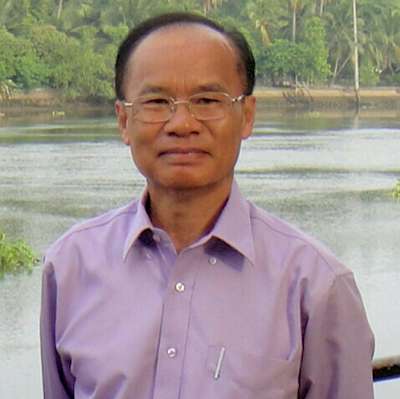 Seri PHONGPHIT, Director of Community Enterprise Institute
Seri PHONGPHIT, Director of Community Enterprise Institute
From 1978 to 2009, Seri PHONGPHIT held various academic and leadership roles, including Associate Professor at Thammasat University, guest lecturer in multiple Thai universities, and Director of the Thai Institute for Rural Development. He managed the Thai-Australia HIV/AIDS Prevention and Care Program and led the Asia-Pacific Intercountry Team of UNAIDS. As a consultant, he contributed to development programs across Asia and West Africa. He also directed the Community Enterprise Institute and founded the Life University Program, which partnered with Ramkhamhaeng University and several Rajabhat Universities to implement a curriculum focused on local development, impacting over 10,000 adult students from all regions. Throughout this period, he was deeply involved in community development, promoting paradigm shifts and strategic planning for local empowerment and enterprise.
Professor Emeritus Tan Sri Dato Dzulkifli ABDUL RAZAK, International Islamic University Malaysia (IIUM)
Dzulkifli Abdul Razak is the former rector of the International Islamic University Malaysia. He was the Vice-Chancellor of Universiti Sains Malaysia from 2000-2011. He is the 14th president of the International Association of Universities (IAU), a UNESCO-affiliated organisation, based in Paris. Dzul was awarded the prestigious 2017 Gilbert Medal by Universitas 21 in recognition of “his long-term commitment to a sustainable approach to international higher education." He is a Senior Fellow of the Academy of Sciences Malaysia (FASc), Fellows of the World Academy of Art and Science (FWAAS) and the World Academy of Islamic Management (FWAIM). In February 2021, he was invited to serve as an Expert for the Futures of Higher Education Project at UNESCO’s Institute for Higher Education (IESALC). He was an invited speaker at Seoul 2023 Nobel Prize Dialogue. For almost twenty-five years he writes weekly Op-Ed columns for various Malaysia news media like The New Straits Times and Utusan Malaysia.
Agenda
|
9 August 2024 |
|
|
15:00 |
Introduction to the ASEAN Circular Economy Stakeholder Platform By Chirachai PUNKRASIN, Executive Director of the ASEAN Centre for Sustainable Development Studies and Dialogue (ACSDSD) & Treesuvit ARRIYAVAT (David), Project Manager at the ASEAN Circular Economy Stakeholder Platform |
|
15:05 |
The Role of Culture and Local Values on Sustainable Development and SDGs by Montakarn SUVANATAP KITTIPAISALSILP, Associate Project Officer for Culture at UNESCO Regional Office in Bangkok |
|
15:15 |
Reflecting ASEAN Values on Circular Economy by Imelda (Dada) BACUDO, Climate Finance & Engagement Strategist at FAO |
|
15:25 |
Panel Discussion: ASEAN Values on the Interpretation of Circular Economy
Moderated by Anthony PRAMUALRATANA, Deputy Executive Director of the ASEAN Centre for Sustainable Development Studies and Dialogue (ACSDSD) |
|
16:00 |
Q&A |
|
16:30 |
Concluding Remarks and Next Steps By Zinaida FADEEVA, Team Leader at the SWITCH-Asia Policy Support Component Loraine GATLABAYAN, Key Expert on SCP awareness raising and regional partnership building at the SWITCH-Asia Policy Support Component & Treesuvit ARRIYAVAT (David), Project Manager at the ASEAN Circular Economy Stakeholder Platform |


